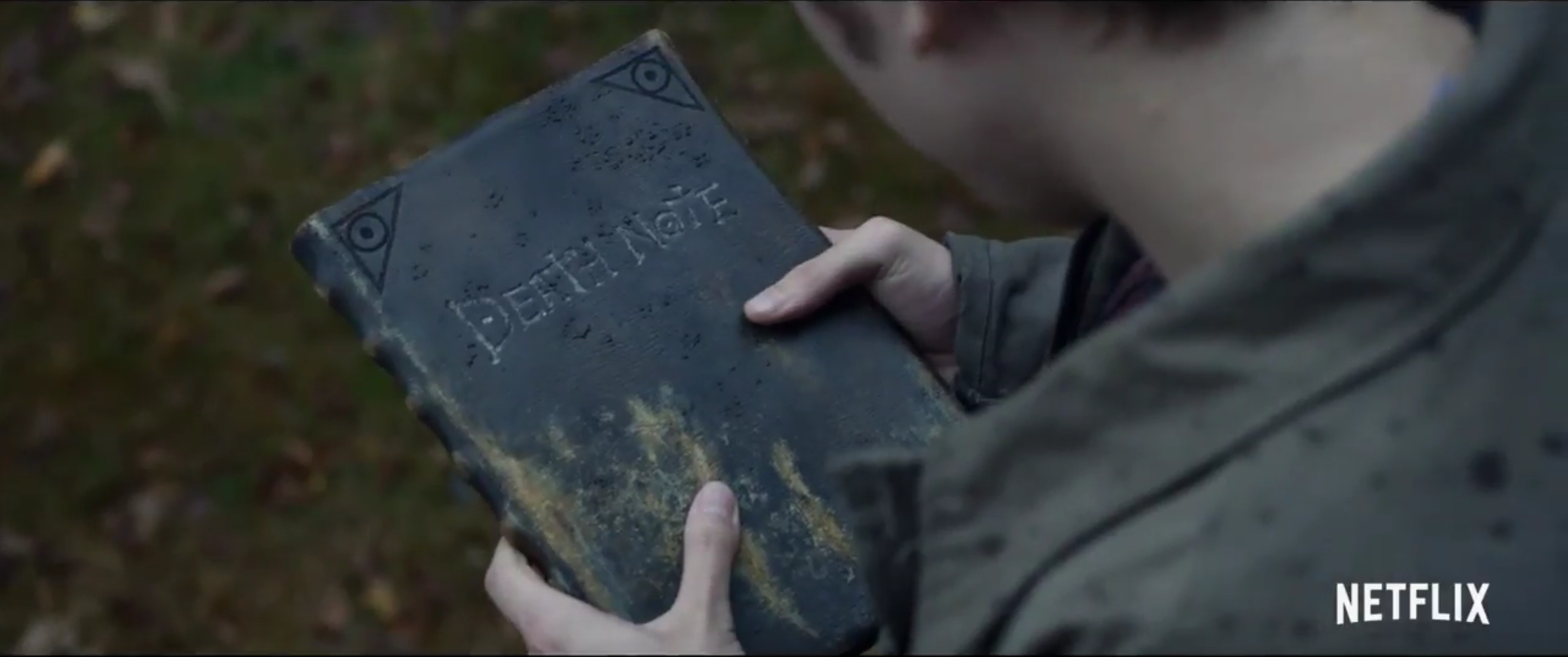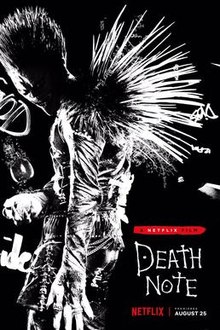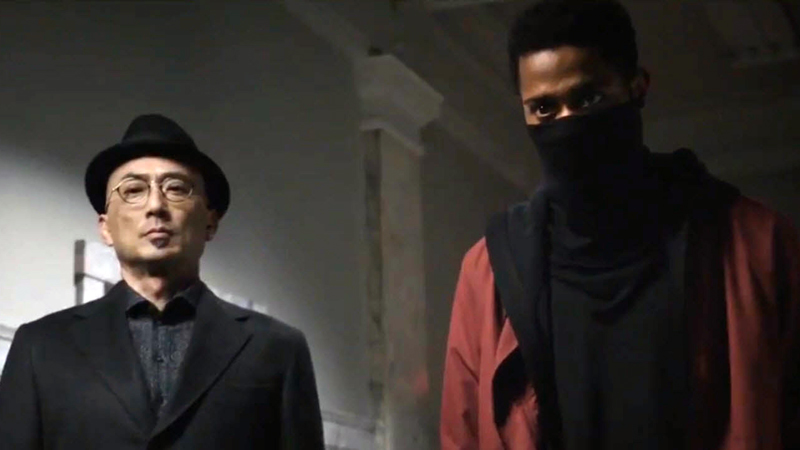
Death Note Review: Perspective of a Non-Series Fan
Director: Adam Wingard
Writer: Charles Parlapanides, Vlas Parlapanides, Jeremy Slater
Starring: Nat Wolff, Lakeith Stanfield, Margaret Qualley, Willem Dafoe
A review by Michael Walls-Kelly

Different adaptations of the same property can be weird things. In a way, an adaptation can be like the actual Death Note: thrown down to different owners to see how much damage they can do.
My own experience of the property is fairly limited. I heard Adam Wingard (You’re Next, The Guest) was adapting it so I recently watched the 37 episode series. I enjoyed it but felt that, by the end, it was grasping for plotlines and was a prime candidate for an adaptation.
My main issues with Netflix’s version of the story is almost the opposite. It needed a little more time to breathe and expand past a surface level story.
Death Note is about Light Turner (Nat Wolff) having a book fall at his feet one day. If he writes a person’s name in the book, they die. There are other rules — as explained to him by Ryuk (Willem Dafoe), the Death God who gave him the book — but the main ones are the who and how. He quickly tells his girlfriend, Mia (Margaret Qualley), about the book and the two of them set about bringing their own brand of justice to the world. They happen to be opposed by an international super-sleuth who goes by L (Keith Stanfield) and Light’s own father, James Turner (Shea Whigham).
The premise of Death Note is inherently interesting. Think of all the different scenarios and stories that can come out of giving a random person this kind of power. This adaptation transports the story to America and casts a young, white, privileged man as the ultimate arbiter of judgement and a hooded black man as his opponent. It’s an inherently charged dynamic that I wish the film had delved into more.
There are definitely some issues with the movie. It feels over-stuffed, like it’s trying to fill to much story in this particular runtime. Light confiding in Mia comes too fast, Light and Mia using the actual Death Note is mainly relegated to a montage and Ryuk is sadly under-used.

The strengths of the film are more promising, however. Wingard and company highlight a lot of what made the series special while also splitting off from the story and doing their own thing. Light is a much different character. In the series he’s an extremely intelligent, progressively amoral sociopath. They soften him slightly in the adaptation. He’s still smart, but he seems to have some kind of conscience and a definite line he will not cross. One of the best parts of the film is Light’s relationship with his father. Whigham and Wolff play extremely well off of each other and their interactions, and the emotional payoff of their storyline is undoubtedly the highlight of the film.
Qualley’s Mia is a slight adaptation from the series, but different enough to be its own character. She’s very interesting and plays it really well. My only problem is that the slightly condensed feeling the film has doesn’t give the character enough time to make her mark until she comes into her own by the end. Ryuk is another character who gets slightly short-changed by the adaptation, but it kind of works. He’s more enigmatic while being just as mischievous. It’s really an issue of the actor and character being so good that we want more than we actually need.

The character who most resembles his counterpart (based on my knowledge of the series) is Keith Stanfield’s L. The character itself demands a heightened performance, and he manages that without going full cartoon. He’s a globe-trotting, trained from childhood, secret detective. He’s gonna be kinda goofy: that’s a fact. He hunches over, squats on chairs, gulps down candy and eschews social norms. What might usually come off as the protagonist of a post-House network drama ends up being incredibly funny and interesting in the hands of Stanfield. He’s been a standout this year in works like Get Out and TV’s Atlanta and this is absolutely no exception. His relationship with his assistant, Watari (Paul Nakauchi) is an interesting mirror of Light and his father.
The film veers away from the series when it comes to the plot, and I think that’s a good thing. It ended up keeping what I found interesting (the minutiae of the Note’s rules, Light’s relationship with his father, etc.) and ultimately doing its own thing. While Wingard seems used to smaller budget horror and thrillers, he definitely showed an aptitude for larger spectacle. That’ll come in handy when he tackles King Kong vs. Godzilla, as he’s slated to.
In the end, Death Note has a very fun and intriguing third act while also needing another ten minutes or so in the beginning to give a few relationships room to breathe. Only Light and his father got a totally satisfying payoff. Of course, there’s always the possibility of a sequel.
Verdict
See it. I enjoyed this film. I totally understand the issues people would have with it as an adaptation and, way more importantly, the issues people would have with it due to whitewashing. I get that it’s a story being transported to America, but there are absolutely Japanese-Americans. And if you’re insisting on a white protagonist and black antagonist — or vice versa, really — there should probably be more focus on those themes. But ultimately I think it’s a visual feast. It’s a technical step up for Wingard and proof that he can pay off action as well as he can set it up.
For second thoughts, see series fan Josh Canales’ review of Death Note.




One thought on “Death Note Review: Perspective of a Non-Series Fan”